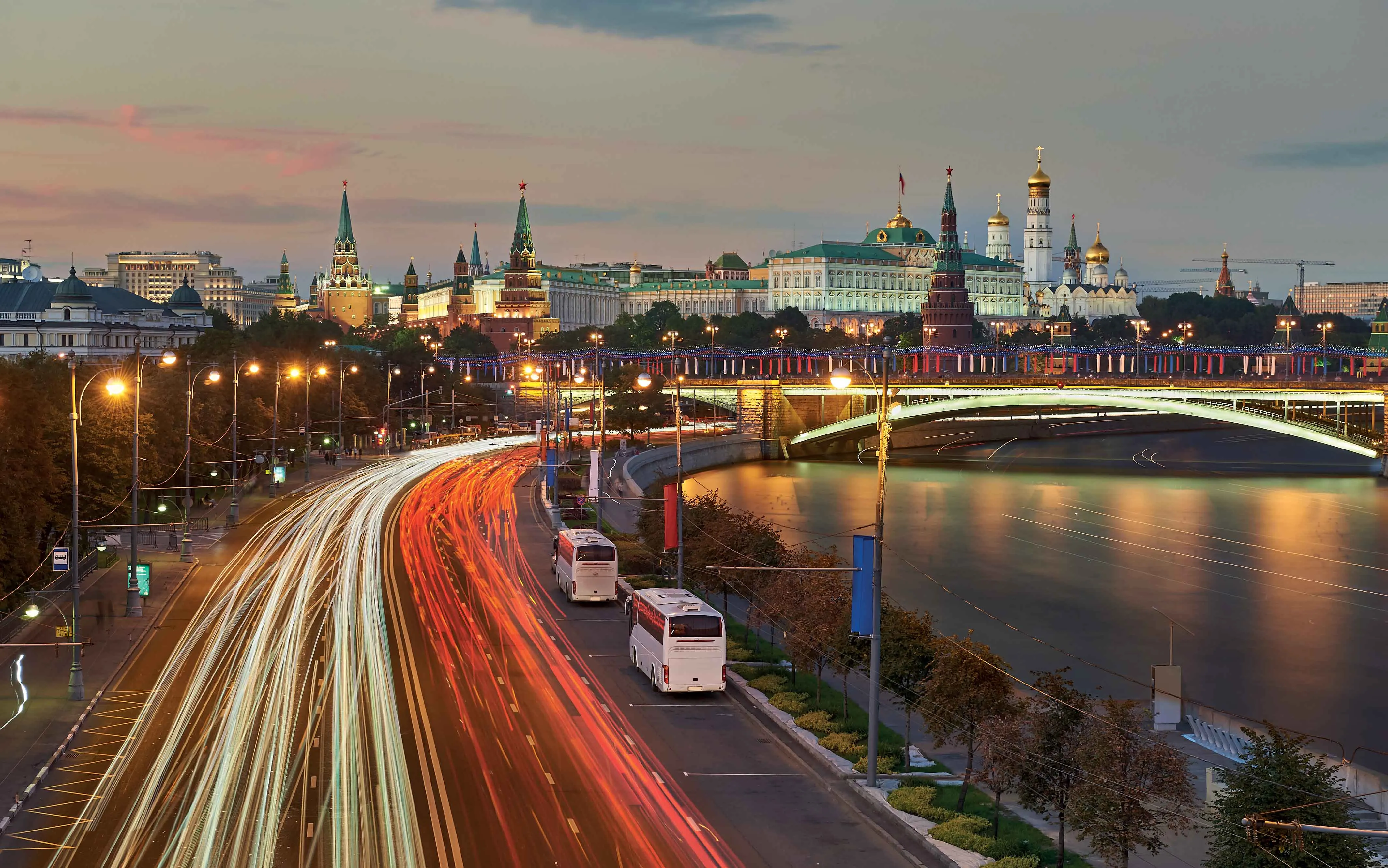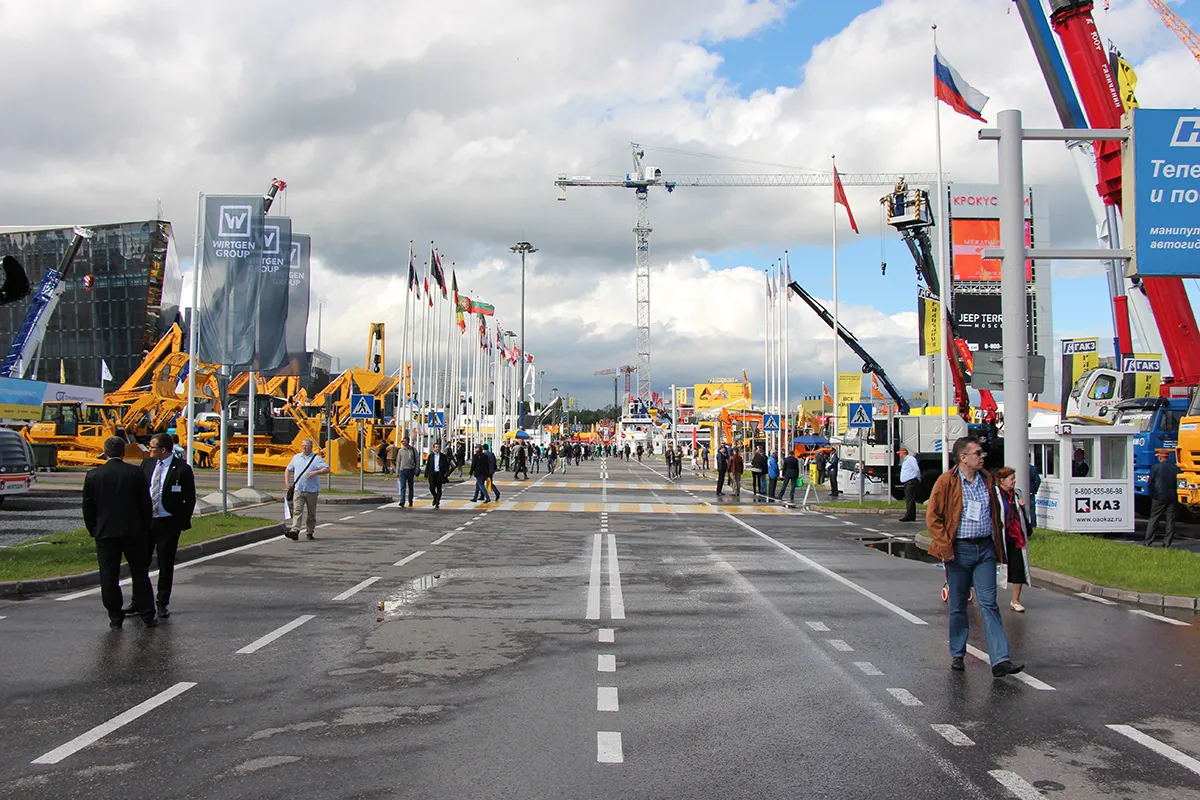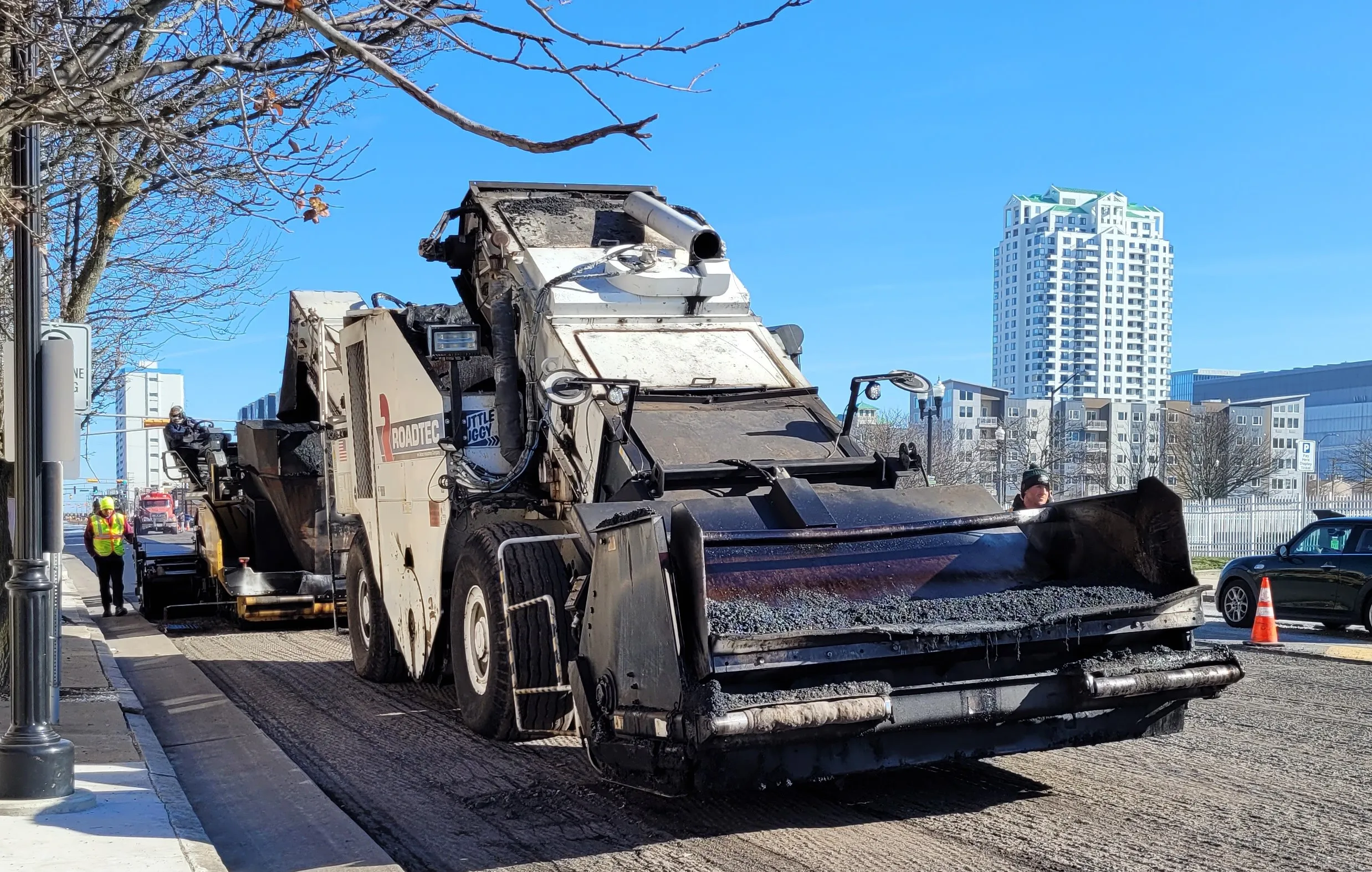Moscow’s congestion problems need addressing but there are different solutions that could provide the answer – Eugene Gerden writes
Moscow’s city government is considering building relief roads to ease congestion on the city’s key roads and highways. This plan has been revealed by recent statements from Marat Khusnullin, deputy mayor for urban policy and construction of the Moscow city government.
June 6, 2016
Read time: 5 mins

Moscow’s congestion problems need addressing but there are different solutions that could provide the answer – Eugene Gerden writes
Moscow’s city government is considering building relief roads to ease congestion on the city’s key roads and highways. This plan has been revealed by recent statements from Marat Khusnullin, deputy mayor for urban policy and construction of the Moscow city government.
Khusnullin said, "We are currently conducting a major research and consulting work, aimed at choosing those major highways of Moscow, where the new relief roads will be built on a first-priority basis. At the initial stage we plan to focus on the building of the northern relief road of the Kutuzov Avenue, one of the city’s major radial avenues, as well as a relief road of the Vnukovo highway.”
In addition, as part of the plans of the Moscow city authorities, is the building of relief roads of key central Moscow streets as Volgograd, Leninsky and Leningradsky Prospekt as well as Prospekt Mira.
In the case of the Kutuzov Avenue, building of the northern relief section has already commenced and this work is expected to be completed no later than 2020. The length of the tolled road will be around 11km and it will feature four lanes.
The new road will be designed to handle a traffic volume of 30,000-40,000 vehicles/day. This will be one of the few Moscow highways, which will connect the city’s downtown with the Moscow Ring Road, a ring road,encircling the parts of the City of Moscow.
In the medium term, the Moscow authorities are considering building a southern relief road for Kutuzov Avenue.
In the meantime, some Russian analysts in the field of road building and engineering have already criticised the latest plans of the Moscow city government, believing that the implementation of the programme may face serious difficulties.
There is also a shortage of space, according to Sergey Tkachenko. He is the former head of the Moscow General Planning Research and Project Institute (GPRPI), one of Russia’s leading institutes in the field of urban planning engineering. He explained that the city has a shortage of suitable space for the building of new relief roads. For this reason, building new roads will face a number of serious challenges.
According to Tkachenko, the building of new relief roads poses a threat to historical buildings and some of the natural areas of Moscow. The historic structures are concentrated in the centre of the city, a significant part of which has the status of having heritage-listed buildings.
Analysts from GPRPI believe that the Moscow city government should focus attention instead on the building of cross-roads, instead of relief highways. These could provide an opportunity to improve the current situation with transport in Moscow, which suffers chronic congestion at peak periods. There is a need to ease the problem of traffic jams in the city.
According to Vladimir Nosov, the construction of relief roads may also complicated by the existing shopping and entertainment buildings, which are located near the outbound routes. He is head of the department of construction and operation of roads of the Moscow State Automobile and Road Technical University, one of Russia’s leading institutions in the field of road building and has analysed the situation in some depth.
Nosov said, "Any construction is associated with the need for the allocation of space and the clearing of the area under construction. At the same time, in the case of the Moscow Ring Road, the road is currently surrounded by a large number of shopping centres and other infrastructure, which significantly complicates the traffic in the city and do not provide an opportunity for the building of new roads.”
According to Nosov, building relief roads will be unnecessary once the Moscow Central Ring Road has been successfully completed. This planned highway will be built in Moscow Oblast, and its construction should reduce congestion on other federal roads, and in particular the Moscow Ring Road. Nosov has also added that building of the Central Ring Road should significantly reduce the volume of transit traffic, which passes through Moscow.
The new project has already been welcomed by the Russian Ministry of Transport. According to an official spokesman of Maxim Sokolov, Russia’s Minister of Transport, building of the new relief roads is an acute need, as it will allow significant reduction of the congestion on the major highways of the city.
According to Sokolov, about half of Moscow roads are overcrowded at present. His spokesperson said, "The building of relief roads is an acute need, as especially in the case of the allocation of private funding. Perhaps, the most important is building of relief roads of the Volgograd prospectus or Prospect Mira, where traffic jams are the most intensive.”
According to an official spokesperson of the Russian Ministry of Transport, the volume of investments in the implementation for these plans is currently not available. However it is planned that the majority of funds will be provided from Moscow City’s own budget.
Moscow’s city government is considering building relief roads to ease congestion on the city’s key roads and highways. This plan has been revealed by recent statements from Marat Khusnullin, deputy mayor for urban policy and construction of the Moscow city government.
Khusnullin said, "We are currently conducting a major research and consulting work, aimed at choosing those major highways of Moscow, where the new relief roads will be built on a first-priority basis. At the initial stage we plan to focus on the building of the northern relief road of the Kutuzov Avenue, one of the city’s major radial avenues, as well as a relief road of the Vnukovo highway.”
In addition, as part of the plans of the Moscow city authorities, is the building of relief roads of key central Moscow streets as Volgograd, Leninsky and Leningradsky Prospekt as well as Prospekt Mira.
In the case of the Kutuzov Avenue, building of the northern relief section has already commenced and this work is expected to be completed no later than 2020. The length of the tolled road will be around 11km and it will feature four lanes.
The new road will be designed to handle a traffic volume of 30,000-40,000 vehicles/day. This will be one of the few Moscow highways, which will connect the city’s downtown with the Moscow Ring Road, a ring road,encircling the parts of the City of Moscow.
In the medium term, the Moscow authorities are considering building a southern relief road for Kutuzov Avenue.
In the meantime, some Russian analysts in the field of road building and engineering have already criticised the latest plans of the Moscow city government, believing that the implementation of the programme may face serious difficulties.
There is also a shortage of space, according to Sergey Tkachenko. He is the former head of the Moscow General Planning Research and Project Institute (GPRPI), one of Russia’s leading institutes in the field of urban planning engineering. He explained that the city has a shortage of suitable space for the building of new relief roads. For this reason, building new roads will face a number of serious challenges.
According to Tkachenko, the building of new relief roads poses a threat to historical buildings and some of the natural areas of Moscow. The historic structures are concentrated in the centre of the city, a significant part of which has the status of having heritage-listed buildings.
Analysts from GPRPI believe that the Moscow city government should focus attention instead on the building of cross-roads, instead of relief highways. These could provide an opportunity to improve the current situation with transport in Moscow, which suffers chronic congestion at peak periods. There is a need to ease the problem of traffic jams in the city.
According to Vladimir Nosov, the construction of relief roads may also complicated by the existing shopping and entertainment buildings, which are located near the outbound routes. He is head of the department of construction and operation of roads of the Moscow State Automobile and Road Technical University, one of Russia’s leading institutions in the field of road building and has analysed the situation in some depth.
Nosov said, "Any construction is associated with the need for the allocation of space and the clearing of the area under construction. At the same time, in the case of the Moscow Ring Road, the road is currently surrounded by a large number of shopping centres and other infrastructure, which significantly complicates the traffic in the city and do not provide an opportunity for the building of new roads.”
According to Nosov, building relief roads will be unnecessary once the Moscow Central Ring Road has been successfully completed. This planned highway will be built in Moscow Oblast, and its construction should reduce congestion on other federal roads, and in particular the Moscow Ring Road. Nosov has also added that building of the Central Ring Road should significantly reduce the volume of transit traffic, which passes through Moscow.
The new project has already been welcomed by the Russian Ministry of Transport. According to an official spokesman of Maxim Sokolov, Russia’s Minister of Transport, building of the new relief roads is an acute need, as it will allow significant reduction of the congestion on the major highways of the city.
According to Sokolov, about half of Moscow roads are overcrowded at present. His spokesperson said, "The building of relief roads is an acute need, as especially in the case of the allocation of private funding. Perhaps, the most important is building of relief roads of the Volgograd prospectus or Prospect Mira, where traffic jams are the most intensive.”
According to an official spokesperson of the Russian Ministry of Transport, the volume of investments in the implementation for these plans is currently not available. However it is planned that the majority of funds will be provided from Moscow City’s own budget.









